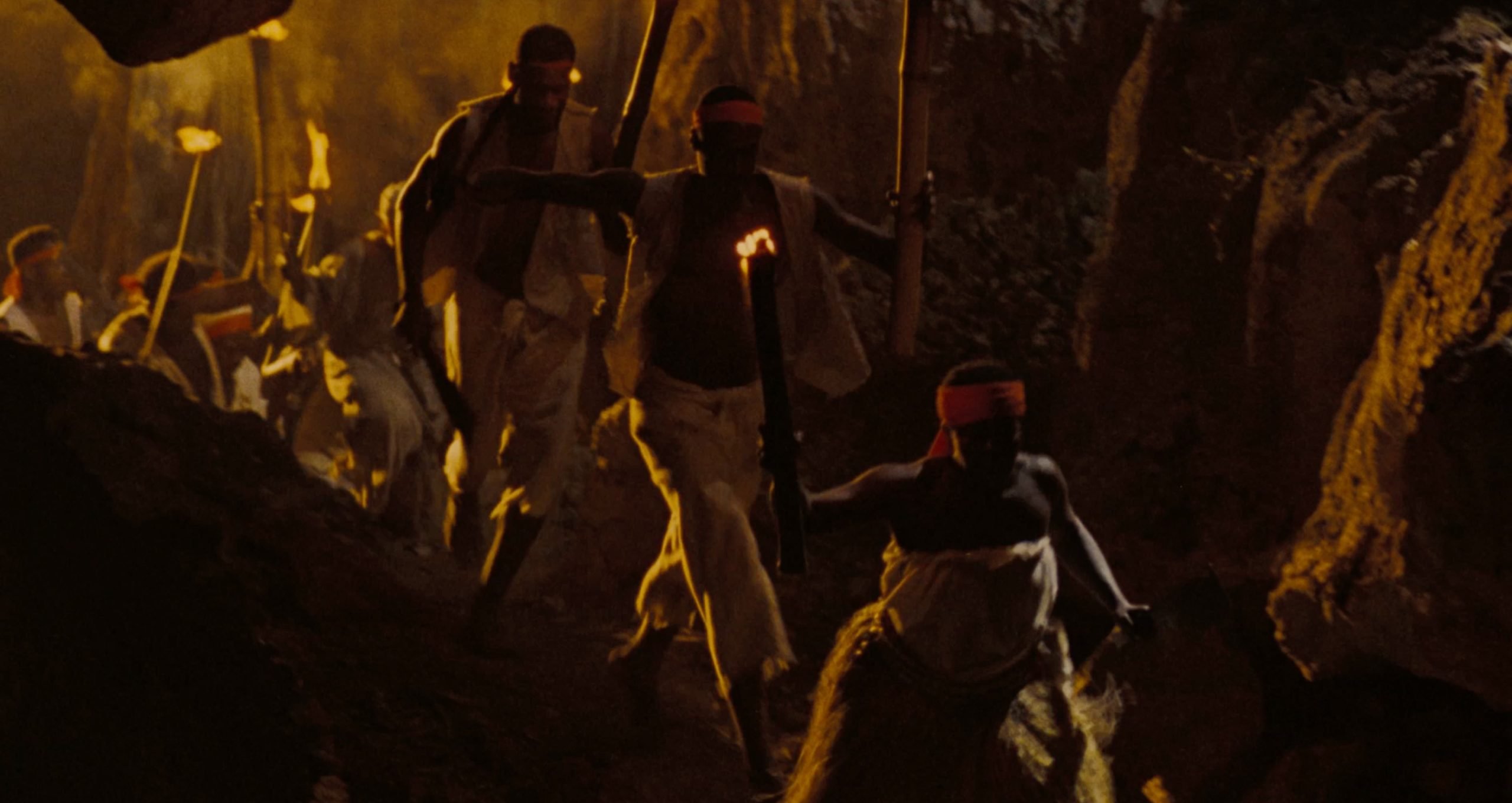While most are familiar with Hollywood depictions of the transatlantic slave trade, there were also other countries that depicted this terrible time period, including countries from the African continent. Ethiopian filmmaker Haile Gerima self-funded and self-distributed Sankofa in its initial release, but despite the lack of screens, it still managed to become a landmark classic thankfully restored. Like plenty of films on the topic, Gerima creates a harrowing depiction of the slave owners’ evil, but unlike others, it’s more interested in the difficult dynamics between the enslaved, the ways they sought refuge and freedom in each other, and the inner lives of the community they shared despite the terror, all through Gerima’s striking images and the masterfully mixed soundscape, both in the soundtrack and various accents. It’s not perfect, and it’s definitely not easy to watch, but Sankofa has a distinct vision that needs to be seen.
Synopsis
On a photo shoot in Ghana, an American model slips back in time, becomes enslaved on a plantation and bears witness to the agony of her ancestral past.
Storyline
While in Ghana for a fashion photo shoot, Black American model Mona slips back in time to an American slave plantation, where she confronts her ancestral past.
TLDR
It’s a tough watch. I wished we got to know Mona more as a character, and I wished we got to see her try to reconcile the modern freedoms (or lack thereof) with the past, but it doesn’t dilute the power of Gerima’s images.
What stands out
There’s something about the way images are chosen in Sankofa– the superimposed shots, the camera looking up towards the sky, the zoom ins, the emphasis on faces and eyes– that feels distinct for both the decade and for writer-director-editor Haile Gerima. Paired with its varied, but carefully mixed soundscape, these images become folkloric, almost otherworldly, in the way that it feels.




